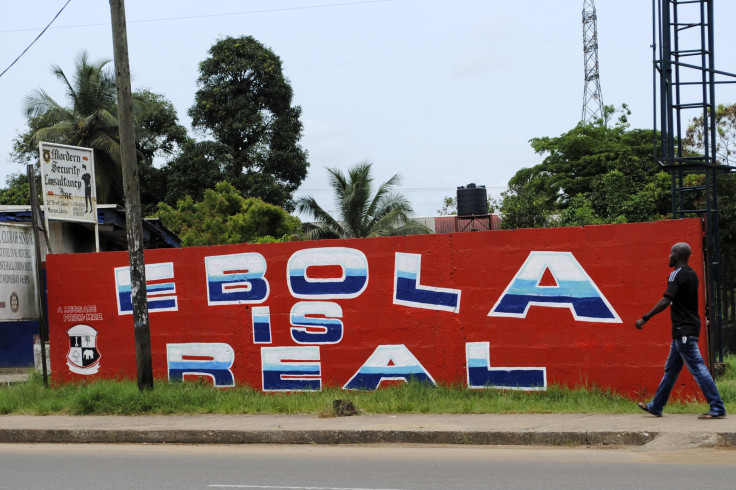Ebola: Has The World Failed West Africa?

World leaders need to step up aid to West Africa or they will miss their chance to stop Ebola before it kills thousands more people and costs hundreds more millions, if not billions, of dollars to stop, health officials say. Nearly a month after world leaders met in New York City to construct a proper response to the deadly viral outbreak, West Africa remains overwhelmed by the disease and the relief effort is woefully underfunded because of administrative red tape, inflexibility and lack of commitment.
United Nations Secretary-General Ban Ki-Moon pleaded with member states Friday to make haste and follow through with millions of dollars in pledges made three weeks ago at the United Nations General Assembly as most of the pledges remain unpaid. Combined, the $377 million that has been donated so far, as well as prospective pledges of $217 million, still make up only half of the U.N.'s $1 billion funding goal.
"We need to turn pledges into action,” Ban said. “We need more doctors, nurses, equipment, treatment centers and medical evacuation capacities." A U.N. official elaborated in an interview Friday: “[Ban] means that due to the gravity of the situation… we cannot afford to lose weeks and weeks for these pledges to turn into actions."
But the U.N. has already lost weeks and weeks waiting for members to step up. Every day that those funds and resources don’t reach Guinea, Liberia and Sierra Leone, people there die. At least 9,191 people have been infected and 4,546 people have died of the disease so far, WHO said Friday. Up to 10,000 more people could become infected with Ebola in the next two months if the world doesn’t mobilize soon, according to WHO assistant director-general Dr. Bruce Aylward.

Donors have shied away from funding the U.N.'s specially established Ebola Response Multi-Partner Trust Fund, which would allow money to be moved to whichever aid organization or U.N. agency needed it for any purpose. The trust fund has received only $20 million in pledges and $14 million from Australia and Venezuela, which are in the process of donating $8.7 million and $5 million, respectively. Only $100,000 from Colombia has actually been transferred to the Ebola Response MPTF.
The U.N. general trust fund is meant to provide “flexibility in responding to a crisis which every day brings new challenges,” according to Dr. Dave Nabarro, who heads the U.N.’s Ebola response task force. “It allows the areas of greatest need to be identified and funds to be directed accordingly,” he said.
Instead, virtually all of the money donated to the U.N. campaign has gone to individual agencies and partner organizations at the discretion of the donors, which can complicate response efforts. The U.N. official said that while donations to individual organizations are greatly welcomed, they can get tied up with those organizations instead of remaining easy to move. A $5 million donation to UNICEF, for example, can be spent only on UNICEF work, even if WHO needs that money more urgently for their response. In some cases, he said, that money may even have to be given back if it's not used for the donor-specified purpose.
None of those pledges are legally binding, either. If it’s a national donation, the funds have to be approved by the national government. Some donor countries may not want to give to a fund where they have no control over where the money goes, the U.N. official said. They want to see it go to a particular place or for a particular project, even though divvying up those funds is best left to the organizations directly tackling Ebola. Even if a national government does move forward with the donation, finding those funds and authorizing them to go to the U.N. can take weeks.
The fund wasn’t established until mid-September, months after Doctors Without Borders, or MSF, warned that the outbreak was growing out of control. MSF’s Brussels president Meinie Nicolai told Bloomberg that her organization was accused of “panicking” and said WHO took the situation “much too lightly.”
WHO Director General Dr. Margaret Chan admitted in an internal memo in June that her agency’s response was inadequate when there was still a chance to stomp out Ebola efficiently. Money was caught up in bureaucratic channels, workers weren’t issued proper visas and, she said, a lack of communication meant the true scope of the outbreak wasn’t made clear until too late.
© Copyright IBTimes 2024. All rights reserved.





















